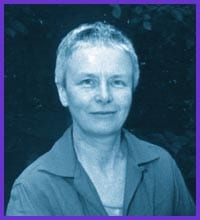Toronto police chief-designate Julian Fantino met with selected members of the gay and lesbian community in January – and promised he’d consider a special liaison committee. It would report directly to him. Fantino also promised he’d meet again with homos very soon to keep talking.
The meeting will be held at 6pm on Wed, Mar 8 at the 519 Church Street Community Centre. Community groups are welcome to send one or two members – you must RSVP to Karen Baldwin at (416) 392-6878, ext 350 (TTY is 392-6874).
Ontario has two similar projects on the go – one in Hamilton and one in Ottawa. The Ottawa story is below. Here’s the Hamilton story:
Hamilton homos never argue in front of the cops.
“We never fight or disagree in front of the police if we can help it,”
says Rui Pires, a co-chair of the Hamilton-Wentworth Regional Police Taskforce On Lesbian, Gay, Bisexual And Transgendered Issues. “In the beginning there was no trust and we were afraid they could capitalize on our differences.”
One thing the Hamilton-Wentworth police have promised after working for three years with a gay liaison committee is to not fax out to the media the names of people arrested in sex sting operations.
“They began to realize that enforcing the issues around public sex can force people to take their lives,” says Pires.
However, Hamilton’s police culture hasn’t shifted so much that the force will promise to stop undercover park sting operations.
Pires’s take is that the cops have to be seen to enforce the law.
It’s frustrating, he says. “I cannot make deals with the police
department. I can work with them.”
Hamilton-Wentworth’s gay task force was formed in 1997 and has its roots in a public sex sting operation, Project Rosebud, in Burlington’s Royal Botanical Gardens.
As time has dissipated the mistrust, Pires says members need to be
cautious of what he calls a “graying of perspective” – that is, a loss
of focus about “who we are and what we are there to do.”
Pires says friendships begin to form between all the members on the
taskforce, and that can dull the edges.
“I need to remind myself I’m there to represent the community,” Pires says.
The task force meets every six to eight weeks and reports directly to police chief Ken Robertson. The six queer representatives are elected at a yearly public meeting.
The other half, the police, are appointed and include the chief, some staff sergeants, a community liaison officer (Hamilton’s is a civilian), a member of the local police services board and a member of the public.
According to co-chair and transgendered woman Rebecca Wenman, the group’s mandate is to improve the workplace climate, to train straight officers, and to improve and solve administrative problems that impact on homophobia-related crimes.
The taskforce has carried out 60 training sessions.
Every three months, a new batch of recruits gets basic training that covers workplace sensitivity and appropriate terminology – including which words not to use (such as homosexual). They are also urged to ask questions.
Pires says rookie cops are also alerted to the fact that their chief takes gay issues seriously, in case recruits think they can just listen politely and then toss out what they’ve heard.
Topics include same-sex domestic violence and youth issues; they’ve helped police launch an anti-bashing campaign in downtown Hamilton and created a pamphlet making police aware of gay community services.
The taskforce is even working on a poster to draw out gay officers.
But with no red-light issues to capture people’s attention and small
numbers in attendance at election meetings, Pires says he is concerned about the task force’s status. “I’m worried about the lack of profile,” he says.

 Why you can trust Xtra
Why you can trust Xtra


